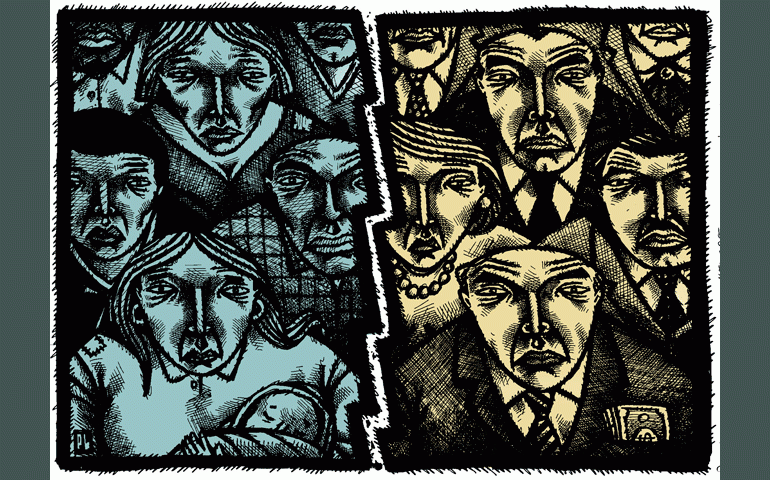Why will people donate money to a needy individual, but balk at broader social programs that help lots of needy people? There’s nothing like a personal story to touch people’s hearts.
Nothing angers conservative Americans more than seeing a poor person wearing expensive tennis shoes, smoking cigarettes or spending their food stamps on junk food.
Why don’t they just eat healthier, shop smarter and save their money to get themselves out of poverty? You know, like we would probably do?
The simplistic answer that “they don’t pull themselves up by their bootstraps because they don’t have any boots” doesn’t adequately explain why poverty is so persistent.
But a recent blog post by a mother of two with two jobs does a great job of illuminating “why poor people’s bad decisions make perfect sense.” In it, Linda Tirado gives an insider’s look at what it’s like to be a member of America’s underclass. What comes through most is the depression, exhaustion and utter lack of hope.
“You have to understand that we know that we will never not feel tired. We will never feel hopeful. We will never get a vacation. Ever. We know that the very act of being poor guarantees that we will never not be poor,” she writes.
Smoking, Tirado explains, works as a stimulant to ward off the exhaustion: “When I am enraged and beaten down and incapable of accomplishing one more thing, I can smoke and I feel a little better, just for a minute. It is the only relaxation I am allowed.”
Why so much convenience food? Dollar frozen burritos are cheap, and cooking attracts roaches. “It makes more sense to get food that you know will be palatable and cheap and that keeps well,” she explains. “Junk food is a pleasure that we are allowed to have; why would we give that up? We have very few of them.”
Poverty, especially entrenched, persistent poverty, destroys any sense of planning or long-term vision. It’s all about surviving day to day.
“We have learned not to try too hard to be middle-class,” Tirado writes. “It never works out well and always makes you feel worse for having tried and failed yet again. Better not to try.”
Much of Tirado’s essay rang true to me, since — because of my own poor decisions — I spent about a year living in poverty when I was younger. I eventually “pulled myself out of it,” though I should say “we,” since I couldn’t have done it without a number of wonderful support services.
Tirado’s story (drawn from her own experiences plus observations of others) certainly struck a chord across the Internet, now having been viewed by millions. So many people responded with offers of help that she set up a go fundme.com site where people can donate so she can quit one of her jobs and write a book. It raised almost $62,000.
I was heartened but also a little surprised by the response. Isn’t this the same country that just voted to cut food assistance to poor families like hers? That wants to put all kinds of restrictions on welfare recipients, from drug testing to work requirements to children’s school attendance?
Why the generosity, when she’s clearly not promising to become an upstanding middle-class American immediately?
Read the entire column, which ran in the Jan. 3, 2014 issue of the National Catholic Reporter, here.

